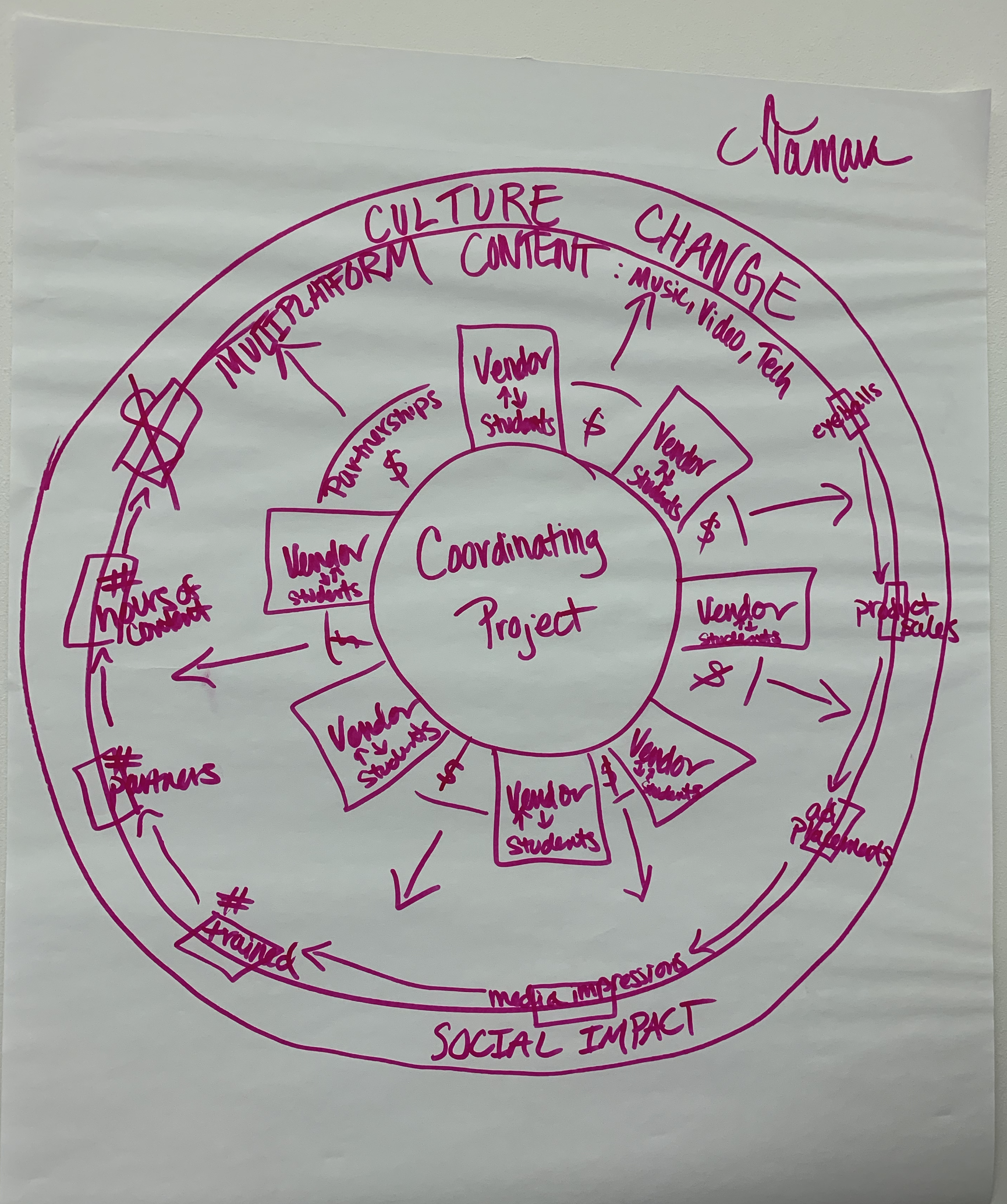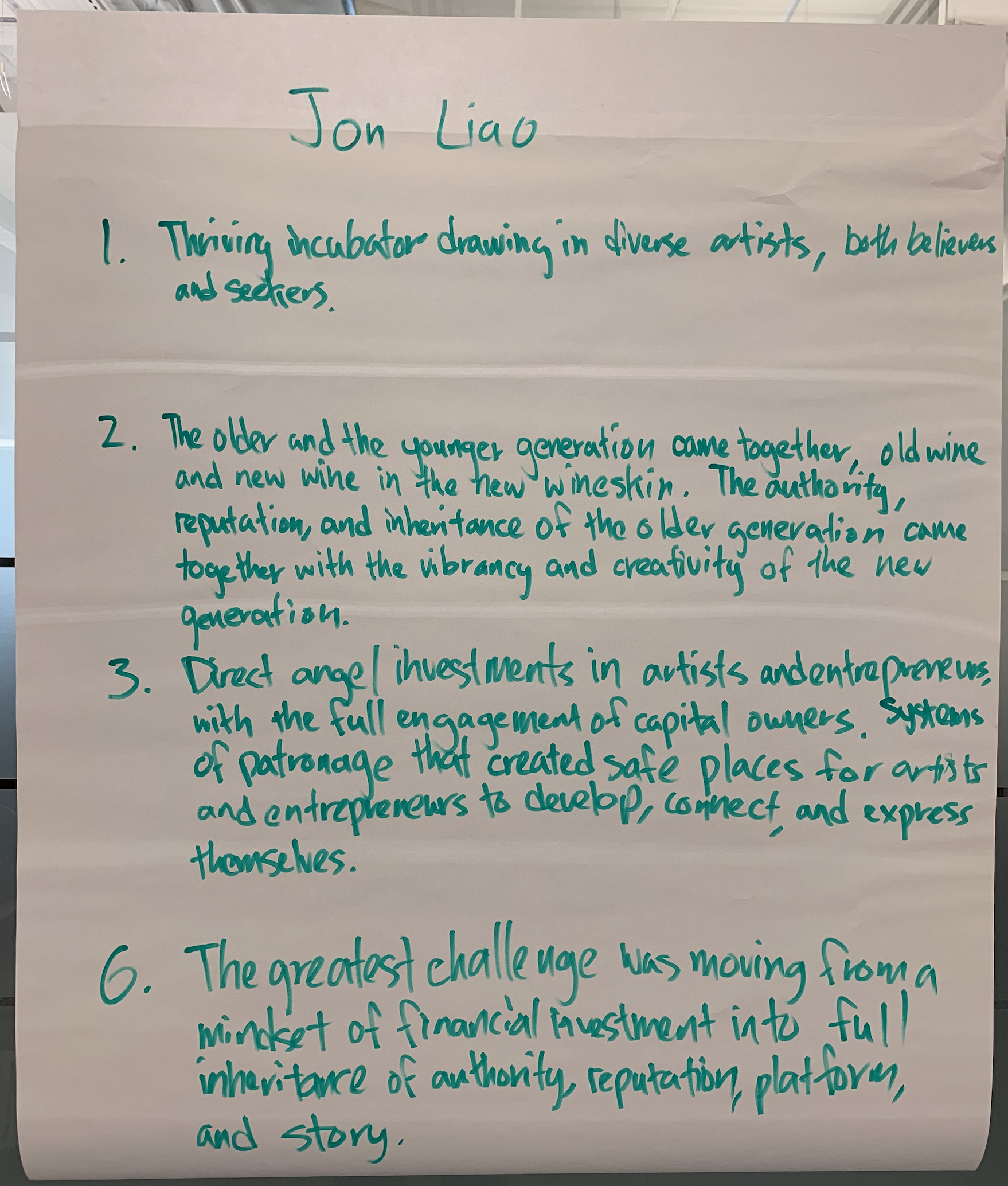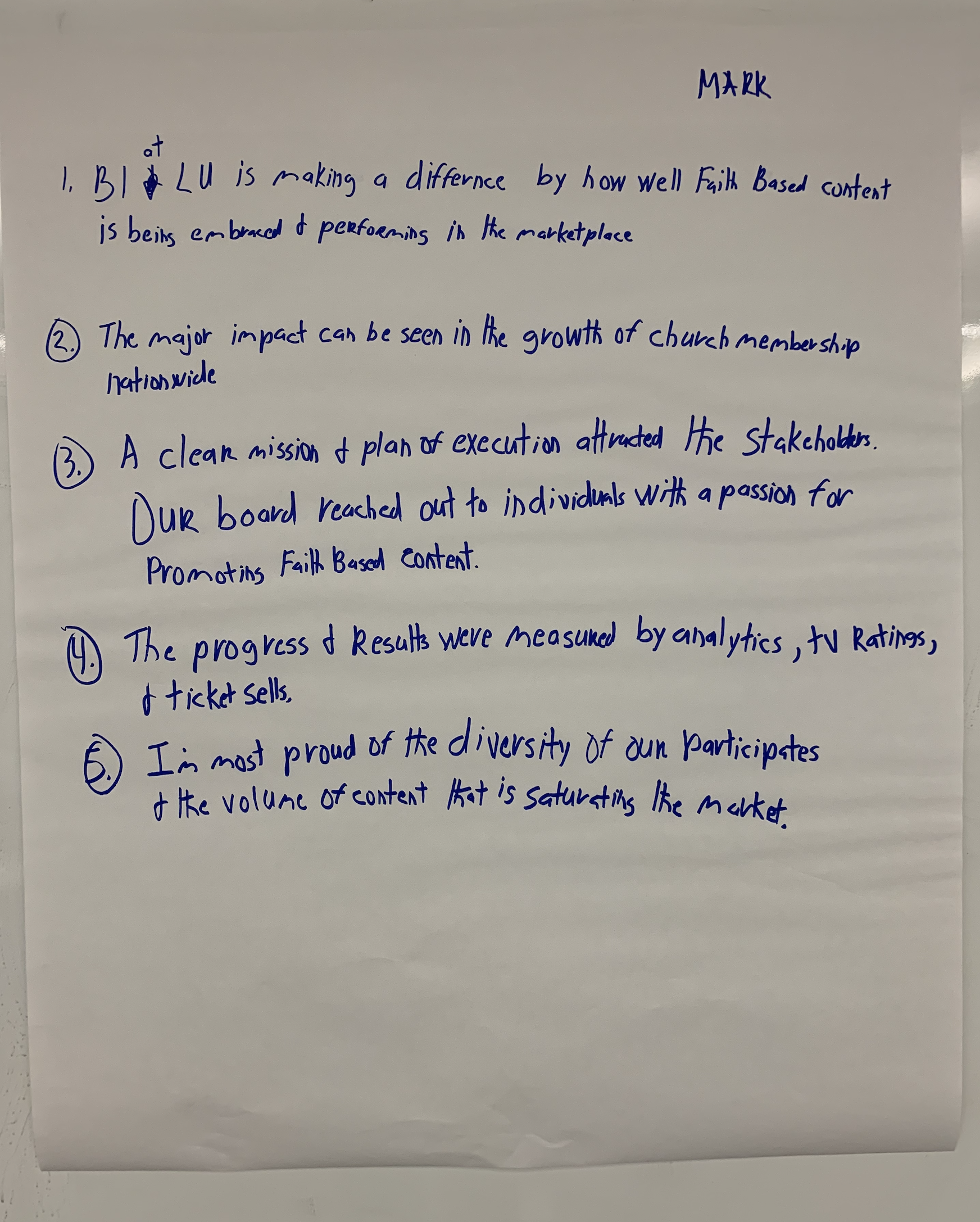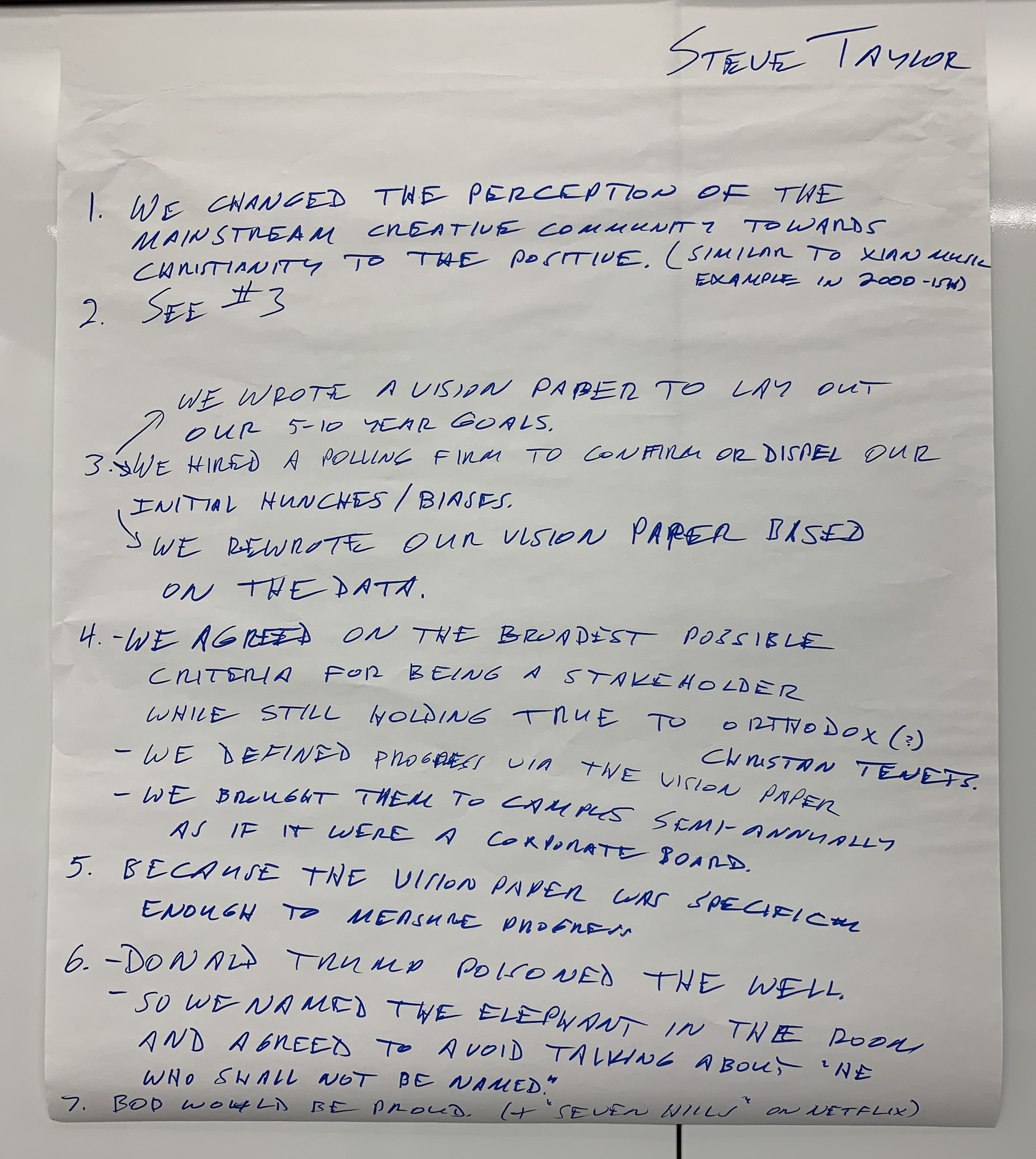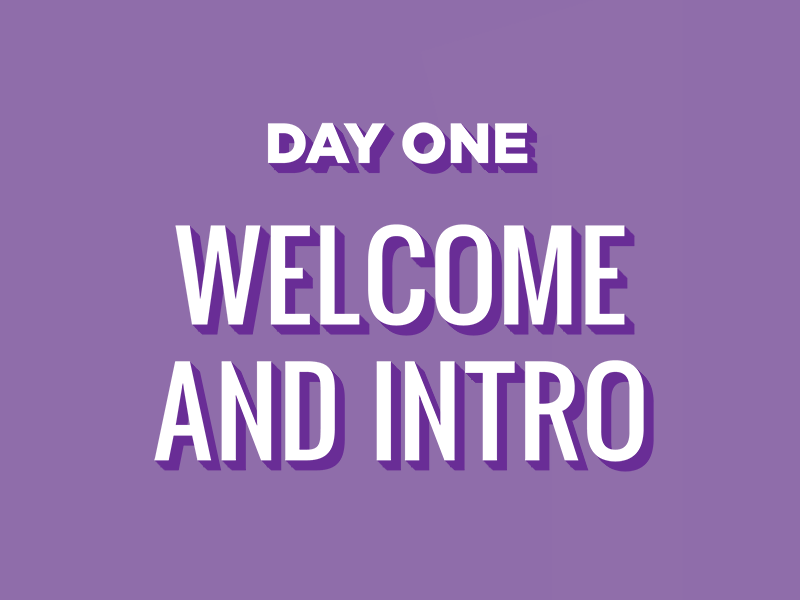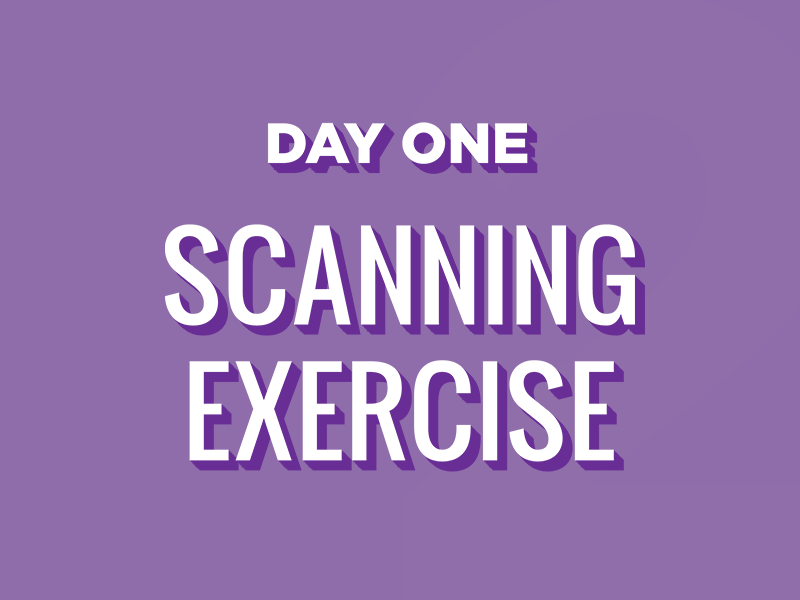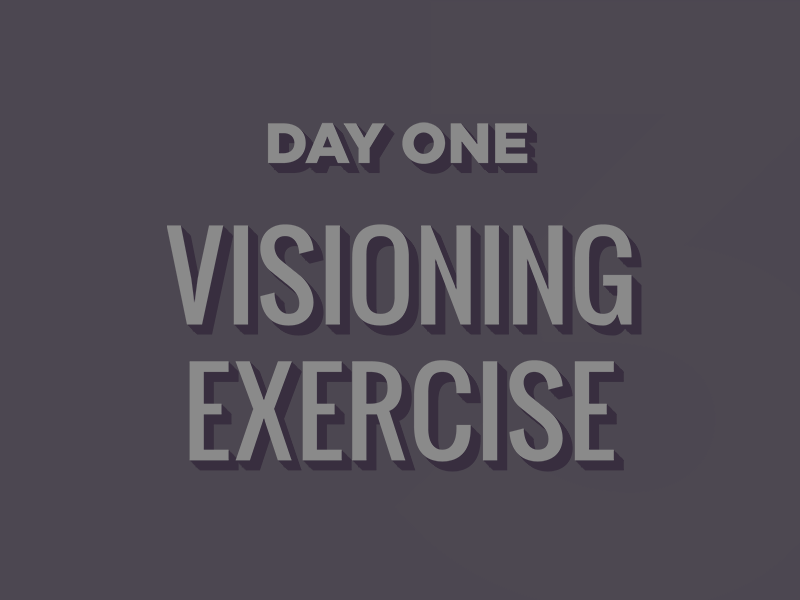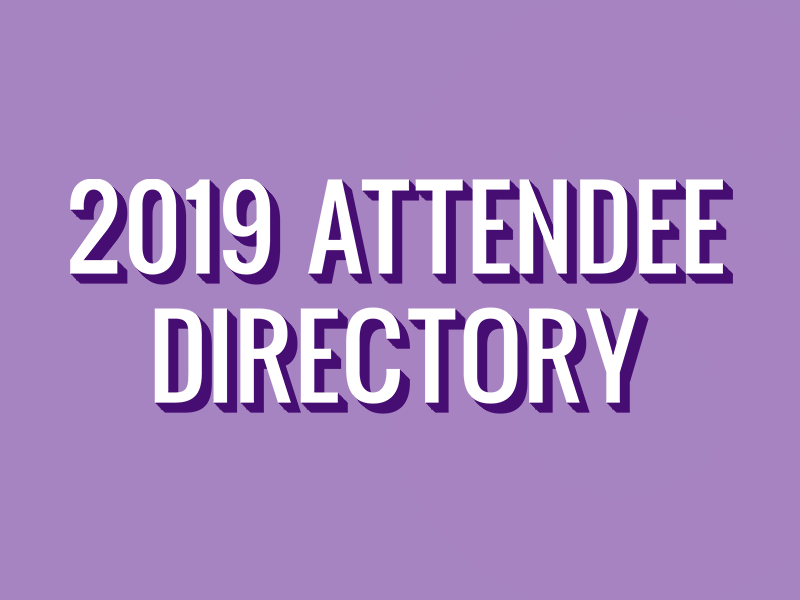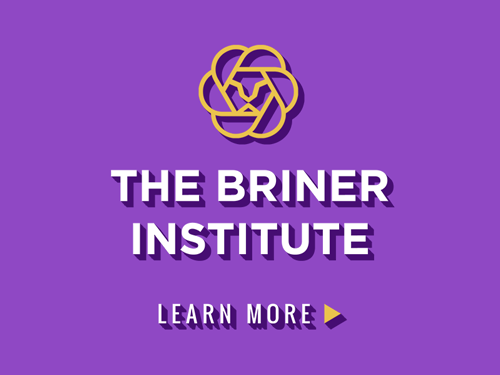
3. Visioning Exercise - Day One
Summary:
During lunch, participants completed an independent vision sharing project. Using flip charts, everyone responded to a list of questions and outlined original suggestions.
Key suggestions included:
Establishing a fund to support artists
Creating an alumni network to keep participants involved
Turning the narrative away from a culture war, and focusing instead on community.
Key Quotes from Participants:
“Christians need to put money into supporting Christian artists and building community.”
“We need to tell stories where people can recognize themselves in those stories.”
“Wouldn’t it be wonderful if we were known for our creative community? We weren’t cutthroat, we were supportive. We’re recognized for the attributes and characteristics we espouse.”
“What if instead of a think tank, we are an act-tank? We don’t just theorize, we do.”
“We’re subject to group think in a variety of ways: knee jerk reactions in our culture.”
“If we can help people to spiritually grow, we’ll have more unity, more collaboration, more shared vision.”
“The ball gets moved forward the greatest amount when a graduate becomes the head of a studio, becomes a programmer at Google, becomes head of the Wall Street Journal, changes the game in our industry. We win when our people win. When our students win.”
“Culture is upstream from politics. So how do we approach the world?”
“Research is important, but so is experimentation.”
“Are you happy with where our culture is today—and do you want to see it move in a different direction? We want to put salt and light in culture. Through people and their content. Because the world is an audience.”
“Roaring Lambs is an exile approach to culture that goes out into culture.”
“Love whoever comes to the table.”
“A Bob Briner idea: The influential arenas of life that are creating our perceptions and ideas of what our life should be are coming through the media, arts and entertainment. Other people are telling those stories. Why aren’t we telling ours?”
“Story is powerful because stories create empathy—it lets you know what it’s like to walk like in someone’s shoes.”
“The idea of salt and light was first communicated to 12 disciples in a day before TV, movies or recorded music. We have been since been offered these media and in that, there’s opportunity.”










